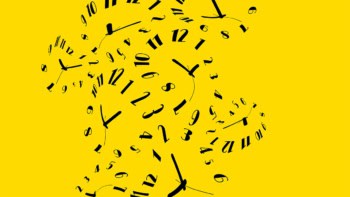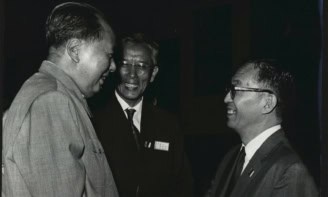
So what is the site about?
The Conversation‘s stated aim is to provide “informed news analysis and commentary that’s free to read and republish”. In other words, it’s a blog. It is, however, a very big blog, with lots of expert authors, a prestigious team of editors and some very deep-pocketed sponsors.
Who is behind it?
That depends on which edition you’re asking about. The Conversation was founded in Australia in 2011, but it has since spread to more northerly reaches of the English-speaking world, gaining a full UK edition in May 2013 and a pilot US version in October 2014. In Australia and the UK, its financial backers are mostly universities and government bodies, such as the Commonwealth Scientific and Industrial Research Organisation (CSIRO) and Research Councils UK. In the US, it’s currently supported by an array of private charities, including the Bill and Melinda Gates Foundation.
Who’s doing the writing?
Each edition has its own set of editors, who are largely drawn from the (decimated) ranks of broadsheet newspaper journalists in Australia and the UK. Most of the articles, though, are written by academic experts from The Conversation‘s supporting universities. Within the science and technology section, for example, top columnists include Monica Grady, a planetary scientist at the UK’s Open University; Simon Redfern, an earth scientist at the University of Cambridge in the UK, and Matthew Bailes, an astrophysicist who is also a pro-vice-chancellor at Swinburne University of Technology in Australia.
What are some of the topics covered?
All three national editions feature stories on arts, business, culture, economics, education, energy, the environment, health, medicine, politics, society, science and technology – so pretty much everything, in other words. Each edition also features country-specific “hot topics” that change over time. As of mid-April, for example, Australian conversationalists were busy debating taxation and private health insurance, while the Americans were keen on vaccines and cybersecurity. In the UK, meanwhile, the conversation was focused on the forthcoming national elections and the digital economy.
These national differences persist within The Conversation‘s science and technology section, and the divisions are not always logical: at the time of writing this, the top physics story on the UK site was about the US space programme, while the Australian edition featured an article about Albert Einstein and Leó Szilárd’s famous 1939 letter to US president Franklin Roosevelt, in which they urged him to consider building nuclear weapons. But with so many stories to choose from, it’s fair to say that Physics World readers are sure to find something, somewhere, that interests them.
Can you give me a sample quote?
From a 28 March post by Nate Szewczyk (University of Nottingham, UK) and Tim Etheridge (University of Exeter, UK) about NASA’s plans to send astronauts to the International Space Station for a full year: “Several strong and valid arguments have been put forward to justify the significant public expenditure that this research involves. These include the notion that the survival of humankind ultimately centres on our ability to inhabit other planetary bodies…More immediate benefits may present themselves, though. The muscle problems from spaceflight closely resemble those caused by numerous conditions on Earth, including long periods of bed rest, muscular dystrophies, cardiovascular diseases and type-2 diabetes. In particular, the ageing process also displays a striking similarity with the changes that occur in space, albeit over a more prolonged timeframe…In short, the unique stresses imposed by living in space provide an opportunity to study, understand and develop countermeasures to some of the most prominent health challenges faced by the human race. The question should therefore not be ‘why should we continue exploring space’, but rather ‘why wouldn’t we?’ ”
- Enjoy the rest of the May 2015 issue of Physics World in our digital magazine or via the Physics World app for any iOS or Android smartphone or tablet. Membership of the Institute of Physics required



